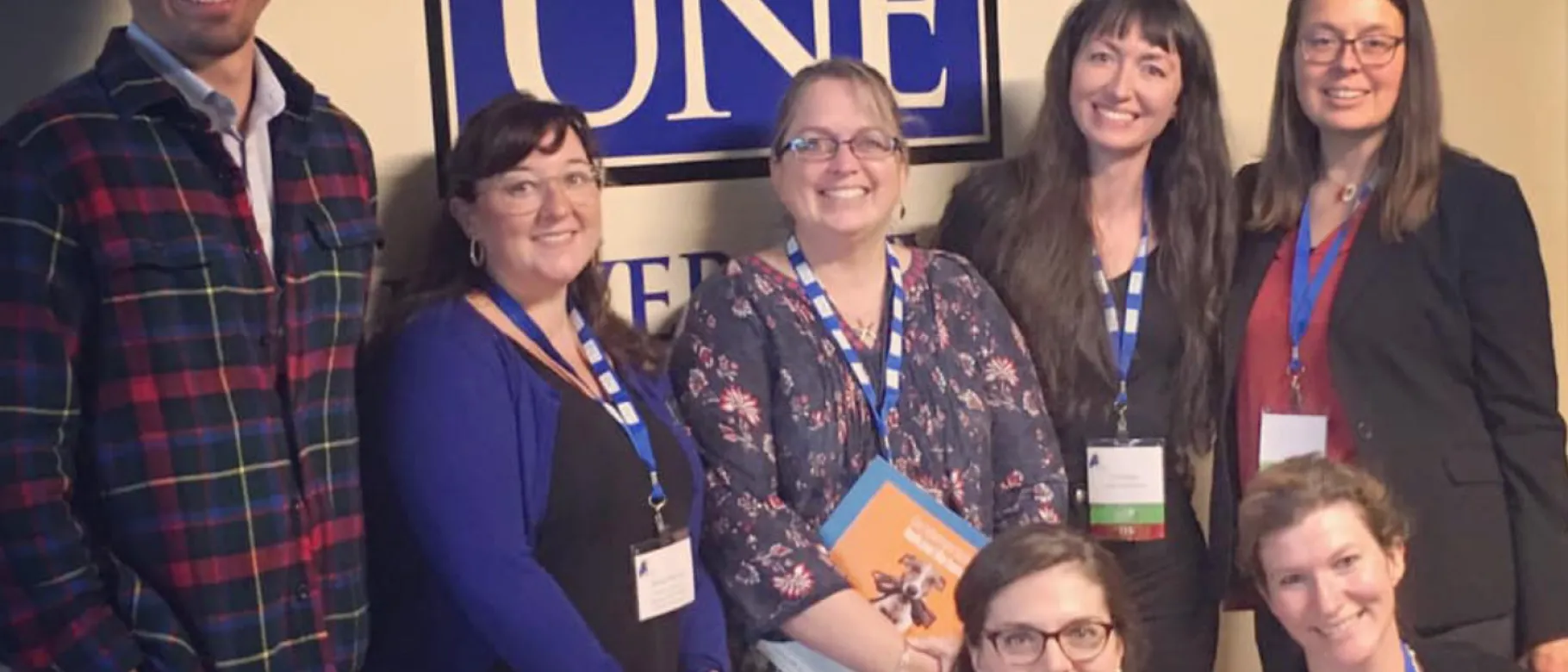UNE hosts Maine Harm Reduction Conference

The University of New England’s Screening, Brief Intervention and Referral to Treatment (SBIRT) grant, in partnership with Portland Public Health Division, held a Maine Harm Reduction Conference on October 4 on UNE’s Portland Campus. This year’s statewide event followed last year’s Southern Maine Harm Reduction Conference, also held at UNE.
Drawing people from all over the state, this year’s event capped registration with 450 attendees, including health professionals; service providers; people in recovery; law enforcement officials; and UNE students, staff and faculty. The series of workshops and presentations provided information and strategies to reduce the negative consequences of substance use and other high-risk behaviors. The day’s offerings included a keynote address by UNE Master of Social Work alum Glenn Simpson ’19 LMSW-CC, CADC, titled “Everything I Thought I Knew About Recovery is Wrong”; three break-out sessions that included introductory, intermediate and advanced options; a choice of two panel discussions; and closing remarks.
The keynote speaker, Simpson, who has been in long-term recovery, is an artist and the creative director of Pieces of Recovery: The Puzzle Project, an art installation consisting of 354 individual puzzle pieces (representing the number of opioid deaths in Maine in 2018). He began the project, funded by a UNE Interprofessional Education Collaborative (IPEC) mini-grant, while still a student at UNE as part of the University’s Applied Arts and Social Justice Certificate program. He has since brought the project to the Maine State House for display at the request of Governor Janet Mills.
Simpson commented on the nature of substance use in the context of harm reduction. “Substance use is on a continuum of risk,” he noted. “Our goal is to move toward reduced risk in small incremental steps. The person who uses the substance, they are the expert in their own experience.”
The event, which lasted for almost nine hours, covered a wide range of topics, including safer spaces for sex workers; overdose prevention education and Naloxone training; addressing power-based violence; the role of law enforcement in creating recovery-ready communities; pregnancy, parenting, and substance use; and many others. The broad array of issues attracted participants from many walks of life. “Something that stood out to me was the presence and interest of so many professional backgrounds and future professions,” noted UNE nursing student Eimile Bishop (A.B.S.N., '20).
Due in part to this comprehensiveness, the conference lasted almost nine hours; but its length, according to attendee Associate Professor of Pharmacy Stephanie Nichols, Pharm.D., BCPS, BCPP, FCCP, in no way subdued the enthusiasm of the participants. “It was notable to me that energy persisted [throughout the day]. People were still engaging and participating and cheering at 3 p.m.,” she stated. “That was striking to me, how resonant this conference was for the attendees.”
Karen Pardue, Ph.D., RN, CNE, ANEF, dean of the Westbrook College of Health Professions, was pleased with the success of the event, expressing her belief that it was well-received by attendees. “The conference theme and concepts reflected a regional need and interest; and I am confident attendees left UNE feeling their time was well invested,” she remarked.
Sponsors of the conference included the Accreditation Council for Pharmacy Education, CAP Quality Care, Grace House, Health Equity Alliance, InterMed, Maine Family Planning, Milestone Recovery, and the University of New England College of Pharmacy’s Office of Continuing Education.